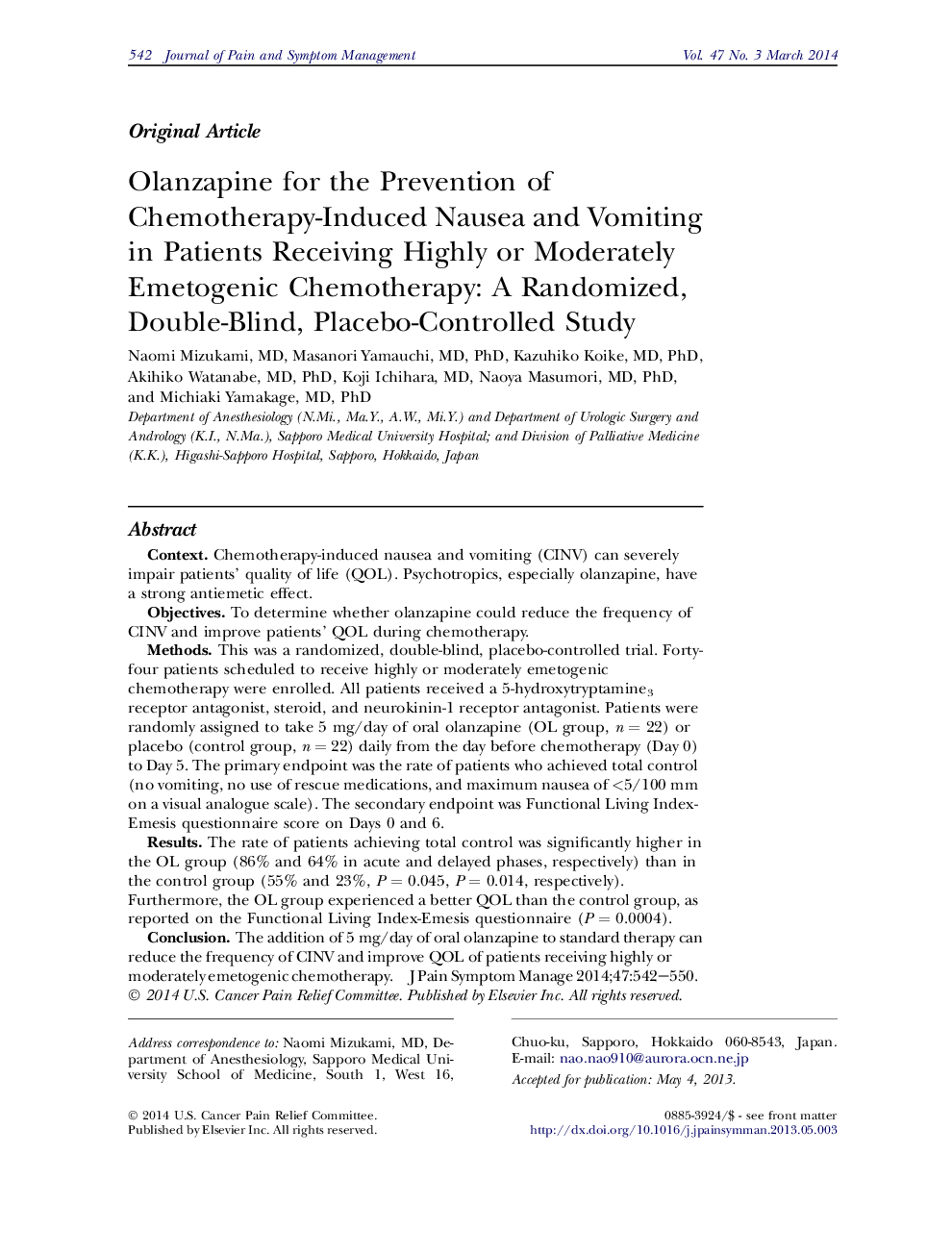| Article ID | Journal | Published Year | Pages | File Type |
|---|---|---|---|---|
| 2724233 | Journal of Pain and Symptom Management | 2014 | 9 Pages |
ContextChemotherapy-induced nausea and vomiting (CINV) can severely impair patients' quality of life (QOL). Psychotropics, especially olanzapine, have a strong antiemetic effect.ObjectivesTo determine whether olanzapine could reduce the frequency of CINV and improve patients' QOL during chemotherapy.MethodsThis was a randomized, double-blind, placebo-controlled trial. Forty-four patients scheduled to receive highly or moderately emetogenic chemotherapy were enrolled. All patients received a 5-hydroxytryptamine3 receptor antagonist, steroid, and neurokinin-1 receptor antagonist. Patients were randomly assigned to take 5 mg/day of oral olanzapine (OL group, n = 22) or placebo (control group, n = 22) daily from the day before chemotherapy (Day 0) to Day 5. The primary endpoint was the rate of patients who achieved total control (no vomiting, no use of rescue medications, and maximum nausea of <5/100 mm on a visual analogue scale). The secondary endpoint was Functional Living Index-Emesis questionnaire score on Days 0 and 6.ResultsThe rate of patients achieving total control was significantly higher in the OL group (86% and 64% in acute and delayed phases, respectively) than in the control group (55% and 23%, P = 0.045, P = 0.014, respectively). Furthermore, the OL group experienced a better QOL than the control group, as reported on the Functional Living Index-Emesis questionnaire (P = 0.0004).ConclusionThe addition of 5 mg/day of oral olanzapine to standard therapy can reduce the frequency of CINV and improve QOL of patients receiving highly or moderately emetogenic chemotherapy.
